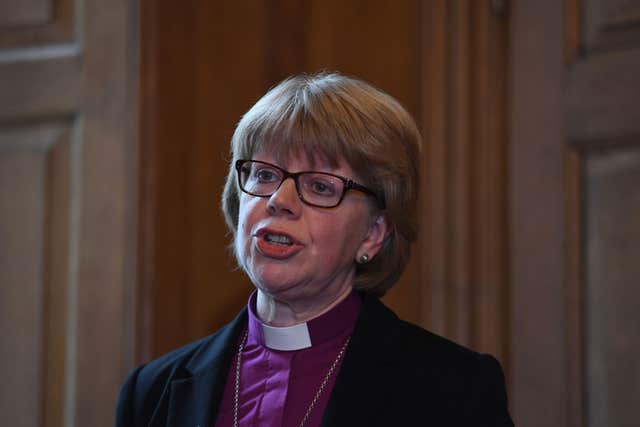‘Thank God for Zoom’ – religious leaders reflect on a year of the pandemic
Churches, synagogues and mosques are among religious buildings which had to close in March 2020.

Faith leaders have hailed the switch to online worship and communication as they recalled the “enormous challenge” they faced having to close religious buildings in the UK’s first lockdown one year ago.
Some aspects such as the option to stream weddings and funerals online for family and friends unable to attend in person will continue long after the pandemic has passed, they added.
Chief Rabbi Ephraim Mirvis declared “thank God for Zoom” as he recalled the “unprecedented situation” of March 2020, describing the closure of synagogues as “one of the biggest decisions I have needed to take, absolutely”.
He told the PA news agency: “All of our congregations throughout the UK, by themselves, adapted instantly, and immediately recognised the significance of being in touch with people electronically, the online communication – thank God for Zoom and for other methods through which we can engage with people.”
He said among the lessons learned within the faith were how to use digital communication to its full extent, adding: “We certainly will continue to use these well after Covid times.”
He said: “We have learned with regard to life cycle events how they are not just for those who cross the threshold to be physically present, but when it comes to weddings and then the sad occasions such as funerals and tombstone consecrations we will have the cameras there to include people right around the globe so that they can fully participate and be part of the event.”
Imam Ajmal Masroor, said the pandemic had taught people that, whatever the situation, they can always adapt.
He told PA: “More people are participating in online programmes than ever before.
“There’s been a huge uptick in terms of more literacy, more awareness, more participation, more engagement.
“One thing we’ve learned from this pandemic is that no matter what happens, we can adapt. So online programmes will continue. They’re here to stay.”

The London-based imam recalled the efforts it took to convince some fellow imams and people within the community that the mosques would have to shut last year.
He said: “I remember some calling me all sorts of names because they were so upset and angry with me.”
But he empathised with the initial reluctance because people have an “emotional attachment” to the mosques.
What people have faced has strengthened their resilience, he added.
“Every single community has been affected, and when you’re affected like that you have no choice but to adapt and become more resilient and become more aware and that’s what they’ve done,” he said.
Many people are still facing a “great sorrow and a burden” as they remain in lockdown for the one-year anniversary of family or friends who died at the beginning of the pandemic, the Bishop of London said.

Dame Sarah Mullally, who chairs the Church of England’s Covid Recovery Group, told PA: “I think one of the great sorrows of the pandemic is that we haven’t been able to mark those rites of passage that we would normally have done.
“Whilst weddings and funerals have taken place, people have not been able to be physically at them and we know, particularly around funerals that has left a huge hole of grief, and I think one of my sorrows is that people thought ‘Well, at least we’ll be able to mark the one year after somebody’s death’.
“Well, actually, we’re getting to the point where we’re still in lockdown and can’t mark those events.”
She added that while streaming is a way for people from afar to join in with important rites of passage, the significance of in-person worship and celebration should not be underestimated.
She said: “We will welcome the opportunity to go back to celebrating weddings and funerals as we used to do, however I think our use of going online means that we will also stream them so there may well be people who couldn’t get to funerals at short notice, or weddings because they live a long way away.
“I do think we will continue to see live streaming of those events, however don’t underestimate our need to celebrate those events in person.”





